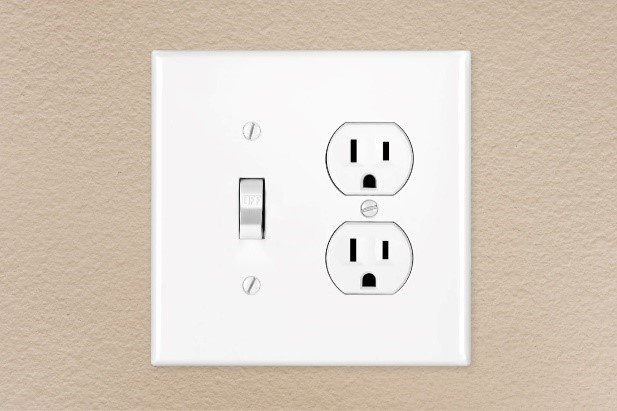What causes the power to go out? Whether you’ve lost electricity in your entire home, one room, or one receptacle, take a look at the possible problems and what you need to know about getting the right repair.
Wild Weather
Some causes of electrical outages don’t require a repair on your end. Wind, lightning, extreme cold, and severe weather can result in a community-wide outage. In some cases, such as a lightning strike to your home, the outage may only affect your electrical system.
If the power goes out during severe weather:
- Call the electric company. The utility company can provide you with information on area-wide outages. If your outage is one of many, they’ll work to fix it. If the outage is only in your home, move on to the next step and figure out what’s wrong.
- Assess the damage when it is safe. Wait for the weather to ease before attempting to assess the damage. Never go outside during an electrical storm, windstorm, or other severe weather event.
- Contact a professional. If a lightning strike, flood, windstorm, or other severe weather damaged your home’s electrical system, never try to fix the problem yourself. Call a professional electrician for an evaluation and repair.
Depending on the type of weather, you may see downed power lines or water may have flooded some of your electrical wiring. Never touch or go near these potentially dangerous electrical issues.
Overloaded Circuit
Did a circuit breaker trip? An overloaded circuit is likely to blame. This is one of the most common culprits behind breaker-related outages. If an overloaded circuit is the cause, you may notice an electrical disturbance in one area or room of the house.
An overloaded circuit happens when you have too many electrical appliances or devices plugged in and operating at the same time. Even though a tripped breaker is irritating, it’s a safety measure used to prevent serious complications. If an overload doesn’t trip the breaker, a fire could result from excess heat.
A one-time trip may indicate a temporary overload. This can happen if you plug in a new appliance or move your electronic devices around. Consistent tripping indicates a persistent problem. If you’re not sure whether you’ve overloaded the circuit or your breaker continues to trip, contact an electrician for an assessment.
If an overload is not at fault, you may have a short circuit or an arc fault. These tripping issues also require the expertise of an experienced electrician.
Outlet Issues
Your electricity is on, the lights work, and most of your electronics function perfectly fine. But anything that’s plugged into one outlet has suddenly stopped.
Why would one outlet stop working? You have a few possibilities, including:
- Ground fault circuit interrupter issue. A ground fault circuit interrupter (GFCI) helps to reduce the risk of electrocution. Moisture or changes in electric current can cause a GFCI to trip. The outlet turns off and won’t work. Press the reset button to turn the outlet back on (provided you have no obvious shock risk).
- Worn outlet. Over time, outlets, like everything else in your home, are subject to wear and tear. An older outlet may stop working without warning. Call an electrician to test and replace the outlet.
- Poor installation. If you’ve recently moved in to your home, the outlet was likely poorly installed. Again, call an electrician for an evaluation. Even if the outlet looks new, it may still need a replacement.
Never attempt to repair the outlet yourself. Homeowners who are inexperienced or have no working knowledge of electrical systems run the risk of electrocution or creating a safety hazard.
Do you have an electrical outage? Contact A to Z Electric Co. for more information.

